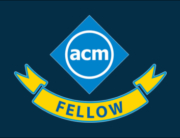IFIP has welcomed the adoption by UNESCO’s General Conference last week of the UNESCO Recommendations on the Ethics of Artificial Intelligence as an important step forward for the world.
Announcing the adoption, UNESCO Director-General Audrey Azoulay said the Recommendation was unprecedented in its substance, scope and degree of precision. Its adoption by the 193 states of UNESCO marks the end of a lengthy process that began in 2018 and offers common ground on the ethical principles to guide the development of AI.
“After years of work we have been rewarded by this important victory for multilateralism – a text which is equal to the challenges of the 21st century … on an important subject for the future of all of us,” said Azoulay.
Azoulay said the advances in AI development and its growing use across a wide range of fields and applications made a global agreement on AI ethics essential.
As an example, she flagged concerns that only around 20 per cent of the designers working in AI were women, which she said could impact the definition of algorithms, objectives and data used for AI, further worsening imbalances in political and social life.
“Given that situation and these risks, we wanted to come up with a framework of values and principles which are precise and pragmatic and shared by the whole world,” she said.
“The Recommendation aims to realise the advantages AI brings to society and reduce the risks it entails. It ensures that digital transformations promote human rights and contribute to the achievement of the Sustainable Development Goals, addressing issues around transparency, accountability and privacy, with action-oriented policy chapters on data governance, education, culture, labour, healthcare and the economy.”
IFIP President-elect Anthony Wong, said that IFIP is “well placed to explore with UNESCO on ways to assist UNESCO and Member States on the range of implementation activities arising from the new Recommendations in the months and years ahead. IFIP links to more than 3,500 scientists from Academia and Industry, in over 100 Working Groups and 13 Technical Committees, and with Member Societies from over 38 countries/regions, covering five continents with a total membership of over half a million.”
IFIP holds consultative status with UNESCO and is incorporated in Austria with the legal status of a non-governmental international organisation under the Austrian Law on the Granting of Privileges to Non-Governmental International Organisations (Federal Law Gazette 1992/174). IFIP was established in 1960 under the auspices of UNESCO as a result of the first World Computer Congress held in Paris in 1959.
For the full text of the UNESCO press release refer: https://en.unesco.org/news/unesco-member-states-adopt-first-ever-global-agreement-ethics-artificial-intelligence






